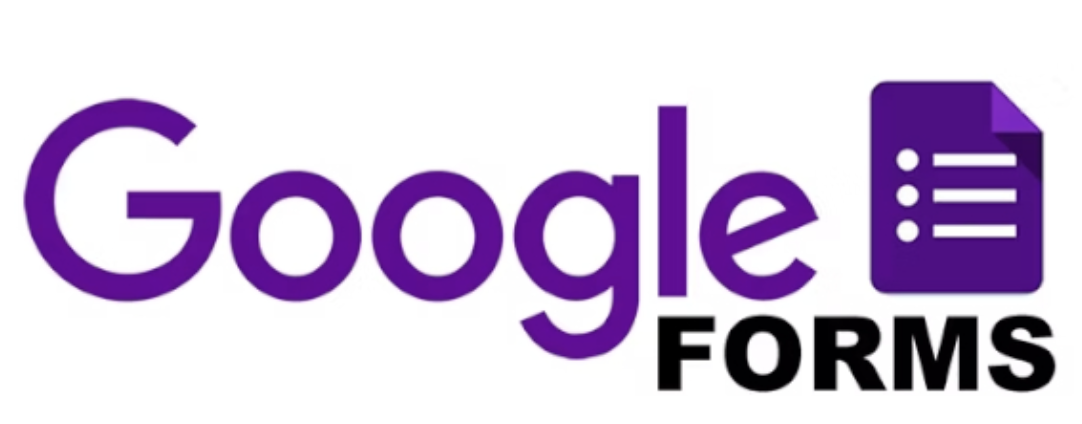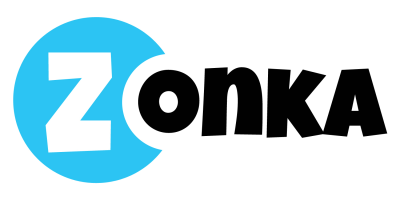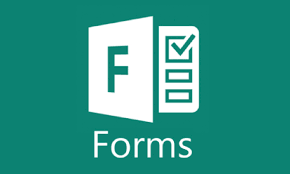
Zurück zum Hub
Blog
The 8 Best Survey Apps in 2025

Mathieu Co-founder
Veröffentlicht am 19. Juni 2025Aktualisiert am 8. Dez. 2025
Collecting feedback is essential for any business that wants to understand its customers and make informed decisions. By 2025, survey apps have evolved into intelligent tools that provide deeper insights through AI, mobile optimization, and seamless integrations. From the countless options available, we have tested and selected the 8 best survey apps to help you choose the one that best suits your needs.
What sets a survey app apart in 2025?
The best survey apps go beyond basic questionnaires and offer features that drive engagement and deliver actionable results. Here are the criteria to look for:
AI-powered analytics: Automatically uncover trends, sentiments, and insights from your data.
Mobile-first design: Ensure your surveys are easy to use on smartphones, where most users are active.
Advanced logic and branching: Customize the flow of questions to improve relevance and response rates.
Real-time reporting: Access instant, customizable dashboards to make quick decisions.
Integration capabilities: Synchronize your data with your CRM, email platforms, and other tools in your technology infrastructure.
The 8 best survey apps for 2025
1. SurveyMonkey - The all-in-one solution

Best for: Businesses that need robust market research and professional-grade security.
Why it stands out: SurveyMonkey's versatility is suitable for businesses of all sizes, with advanced analytics and compliance tools.
Key features:
AI Data Pilot: Identifies trends and provides actionable insights.
Audience Marketplace: Purchase responses to collect targeted data.
Security: HIPAA, PIPEDA, and GDPR compliance for sensitive industries.
Pricing: Free plan; paid plans starting at $23/month.
Best for: Businesses such as pharmaceutical or financial companies that need secure and scalable solutions.
2. Typeform - The leader in engagement

Best for: Brands that prioritize user experience and high response rates.
Why it stands out: Typeform's conversational and visually appealing surveys achieve response rates up to four times higher than the industry standard.
Key features:
Conversational interface: one question at a time keeps users focused.
AI survey builder: generates surveys from simple questions.
Visual design tools: integrates with Unsplash for royalty-free images.
Pricing: free plan; paid plans starting at $50/month.
Best for: Marketing teams and design-focused businesses where branding is important.
3. Google Forms - The free champion

Best for: Small teams or teachers who need simple, free surveys.
Why it stands out: Google Forms is intuitive, collaborative, and integrates seamlessly with Google Sheets.
Key features:
Google integration: real-time data synchronization with Sheets.
Zero cost: completely free with a Google account.
Collaborative editing: multiple users can work simultaneously.
Pricing: free.
Best for: start-ups, schools, or anyone who needs basic features without complexity.
4. Zonka Feedback - The customer experience specialist

Best for: Businesses focused on real-time customer feedback.
Why it stands out: Zonka excels at collecting omnichannel feedback and processing responses instantly.
Key features:
Multichannel distribution: email, SMS, web, apps, and interactive kiosks.
Real-time alerts: Immediate notifications for negative feedback.
AI analysis: Sentiment analysis for deeper insights.
Pricing: Free plan; paid plans starting at around $49/month.
Best for: Retail, hospitality, or customer service teams that need fast feedback loops.
5. QuestionPro - The heavyweight of research

Best for: Academic institutions and marketing researchers who need advanced logic.
Why it stands out: QuestionPro offers sophisticated tools for complex surveys at a reasonable cost.
Key features:
Complex question types: grids, sliders, and side-by-side comparisons.
Advanced logic: dynamic branching for customized survey flows.
Business analytics: detailed reports for data-driven decisions.
Pricing: free plan; variable paid plans.
Best for: universities, consulting firms, or companies conducting in-depth research.
6. Jotform - The versatile form builder

Best for: Businesses that need surveys as well as forms for payments or registrations.
Why it stands out: Jotform's drag-and-drop interface supports a variety of use cases beyond feedback.
Key features:
Payment integration: Collect payments directly in forms.
Workflow automation: Trigger actions based on responses.
Comprehensive templates: Over 10,000 pre-built options.
Pricing: Free plan; paid plans starting at around $34/month.
Best for: E-commerce, event organizers, or teams that need versatile forms.
7. SurveySparrow - The engagement innovator

Best for: Businesses looking to increase response rates with interactive surveys.
Why it stands out: SurveySparrow's chat-like interface increases response rates by up to 40%.
Key features:
AI survey creation: Generates surveys from text messages.
Multi-channel distribution: Includes WhatsApp, SMS, and offline modes.
Advanced text analysis: Extracts information from open-ended responses.
Pricing: Free plan; paid plans starting at ~$19/month.
Best for: HR and CX teams or companies that prioritize engagement.
8. Microsoft Forms - The enterprise integrator

Best for: Organizations using Microsoft 365.
Why it stands out: Its seamless integration with Microsoft tools makes it ideal for enterprise workflows.
Key features:
Synchronization with Office 365: Responses are transferred to Excel and Teams.
Enterprise security: Built-in compliance for large organizations.
Collaborative analysis: Review team data in real time.
Pricing: Free with a Microsoft account; advanced features with Microsoft 365.
Best for: Businesses, government agencies, or companies that primarily use Microsoft.
How survey apps drive business value
Surveys aren't just for gathering feedback—they're strategic tools for growth. Here's how to leverage them:
Lead generation: Survey respondents are engaged prospects. Follow up with tools like Emelia.io to turn responses into qualified leads.
Upsell opportunities: Identify satisfied customers who are ready to benefit from premium services.
Product validation: Test market demand before developing new features.
Customer journey optimization: Identify pain points and improve the experience.
Key trends that will shape survey apps in 2025
AI everywhere: From question generation to predictive analytics, AI streamlines creation and analysis.
Mobile first: Thumb-friendly designs, offline features, and push notifications drive engagement.
Privacy and compliance: GDPR/CCPA compliance, encryption, and anonymous options are a must.
Choosing the right survey app
Use this framework to choose the best tool:
Survey volume
Low (<100 responses/month): Google Forms, free plans from Typeform.
Medium (100-1,000): SurveyMonkey, Zonka Feedback, SurveySparrow.
High (1,000+): Enterprise plans from SurveyMonkey or QuestionPro.
Technical requirements
Simple: Google Forms, Microsoft Forms.
Complex logic: QuestionPro, SurveyMonkey.
Customer experience-focused: Zonka Feedback, SurveySparrow.
Design-focused: Typeform, Jotform.
Budget
Free: Google Forms, Microsoft Forms.
Economical: SurveySparrow (~$19/month).
Mid-range: SurveyMonkey, Typeform, QuestionPro.
Enterprise: Custom pricing for large needs.
Application Ideal for Starting price Key feature Optimized for mobile
Survey App | Best For | Starting Price | Key Feature | Mobile Optimized |
|---|---|---|---|---|
SurveyMonkey | Market Research | $23/month | AI Data Pilot | ✅ |
Typeform | Brand-Conscious Companies | $50/month | Conversational UI | ✅ |
Google Forms | Budget-Conscious Teams | Free | Google Integration | ✅ |
Zonka Feedback | Customer Experience | $49/month | Real-time Alerts | ✅ |
QuestionPro | Advanced Research | Varies | Complex Logic | ✅ |
Jotform | Multi-Purpose Forms | $34/month | Payment Integration | ✅ |
SurveySparrow | Engagement Focus | $19/month | AI Survey Creation | ✅ |
Microsoft Forms | Microsoft Users | Free* | Office 365 Sync | ✅ |
Pro tips for successful surveys
Optimize timing
B2B: Tuesday-Thursday, 10 a.m.-2 p.m.
Consumers: weekends, mornings.
Follow up: 3 to 5 days after the initial invitation.
Be concise: aim for 7 questions (consumers) or 12 (B2B), lasting less than 5 minutes.
Reward intelligently
B2B: offer reports or exclusive information.
Consumers: use gift cards or entries into prize draws.
Use progressive profiling: collect basic information first, then ask more in-depth questions in follow-ups.
Avoid these mistakes in your surveys
Overloaded matrix questions: break complex grids into smaller sections.
Leading questions: remain neutral to avoid bias.
Survey fatigue: space out requests to maintain goodwill.
Ignoring mobile devices: make sure surveys are thumb-friendly, or you'll lose more than 60% of respondents.
Optimize survey ROI
Close the feedback loop: Thank respondents and explain how their feedback is driving change.
Integrate sales: Synchronize data with CRMs to speed up lead processing.
Personalize communication: Use survey responses to drive targeted campaigns with tools like Emelia.io.
Create content: Turn insights into blogs, white papers, or social media posts that meet the needs of your audience.
The future of survey apps
Survey apps are becoming smarter and more integrated:
Voice-enabled surveys: Let respondents give feedback hands-free.
Predictive analytics: Anticipate respondent behavior.
Real-time adaptation: Adjust questions dynamically.
Automated workflows: Trigger actions directly from responses.
Your next steps
Define your goals: What decisions will the data help you make?
Choose a tool: Compare features, budget, and technical requirements.
Design smart: Prioritize the respondent experience.
Act on insights: Use data to improve your products, services, and relationships.
Follow up: Engage respondents to build trust and loyalty.
By 2025, the best companies will use surveys as growth engines. Start collecting feedback today and turn insights into actionable results.
FAQ

What is the difference between survey apps and form builders?
Survey apps focus on feedback through logical, analytical, and research-driven templates. Form builders have a broader function and allow you to manage contact forms, payments, or registrations.
Can survey apps generate leads?
Yes! Surveys engage prospects, and responses can fuel personalized outreach using tools like Emelia.io.
How long should surveys be?
Consumers: ≤ 7 questions, approximately 2-3 minutes. B2B: ≤ 12 questions, < 5 minutes.
Are free survey apps suitable for businesses?
Google Forms and Microsoft Forms meet basic needs but lack advanced logic and analytics features. Paid tools offer a better return on investment for serious feedback programs.
How can I increase response rates?
Surveys should be short, optimized for mobile devices, and relevant. Use incentives, send them at strategic times, and show respondents that their opinions matter.
Do survey apps integrate with CRM?
Most offer CRM integrations via direct connections or Zapier, synchronizing responses for automated follow-ups.
How can you ensure data privacy?
Choose apps that are GDPR/CCPA compliant, with encryption and transparent privacy policies. Inform respondents about how their data will be used and offer them the option to opt out.

Klare, transparente Preise ohne versteckte Kosten.
Keine Verpflichtung, Preise, die Ihnen helfen, Ihre Akquise zu steigern.
Credits(optional)
Sie benötigen keine Credits, wenn Sie nur E-Mails senden oder auf LinkedIn-Aktionen ausführen möchten
Können verwendet werden für:
E-Mails finden
KI-Aktion
Nummern finden
E-Mails verifizieren
€19pro Monat
1,000
5,000
10,000
50,000
100,000
1,000 Gefundene E-Mails
1,000 KI-Aktionen
20 Nummern
4,000 Verifizierungen
€19pro Monat
Entdecken Sie andere Artikel, die Sie interessieren könnten!
Alle Artikel ansehenBlog
Veröffentlicht am 5. Apr. 2025
FullEnrich: Bewertungen, Preise und Alternativen, um böse Überraschungen zu vermeiden
 Mathieu Co-founder
Mathieu Co-founderWeiterlesen
Software
Veröffentlicht am 31. März 2025
9 Alternativen zu UpLead, um Ihre Kundenakquise WIRKLICH anzukurbeln
 Niels Co-founder
Niels Co-founderWeiterlesen
Software
Veröffentlicht am 11. Juli 2024
8 Alternativen zu Expandi, um Ihre Akquisitionskosten zu senken
 Marie Head Of Sales
Marie Head Of SalesWeiterlesen
Software
Veröffentlicht am 22. Apr. 2024
Die 5 besten Alternativen zu Dropcontact für eine bessere B2B-Kundenakquise
 Marie Head Of Sales
Marie Head Of SalesWeiterlesen
Software
Veröffentlicht am 14. Juli 2024
6 Alternativen zu Skylead, um Kosten zu sparen und Ihre Lead-Generierung zu verbessern
 Marie Head Of Sales
Marie Head Of SalesWeiterlesen
Software
Veröffentlicht am 4. Juni 2024
Die 6 besten Alternativen zu GetProspect, um Ihre Kundenakquise anzukurbeln
 Marie Head Of Sales
Marie Head Of SalesWeiterlesen
Made with ❤ for Growth Marketers by Growth Marketers
Copyright © 2026 Emelia All Rights Reserved
